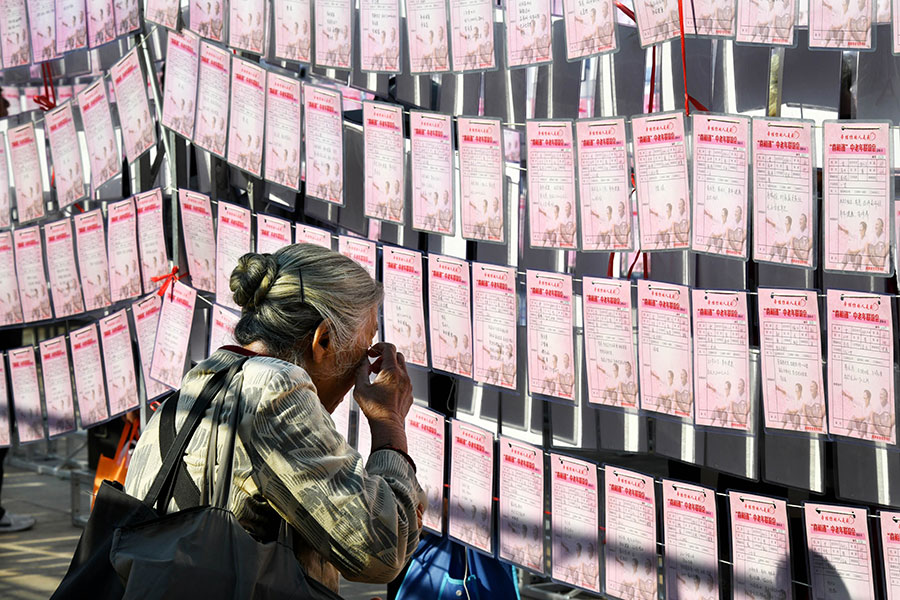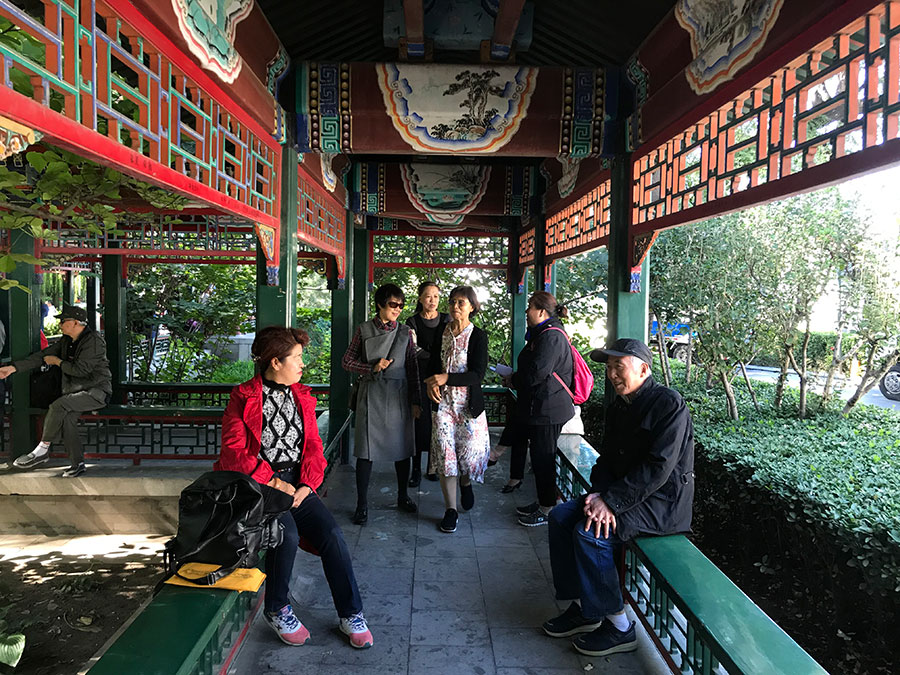
From the People's Daily App.
This is Story in the Story.
With the growth of the older single population, many people have concerns about finding a suitable partner and remarriage, including issues about finances, mental agility, family, and their children's opinions.
At the end of 2013, China was home to 202.43 million people aged 60 or older. By last year, the number had risen to 249.49 million, roughly half the population of the European Union.
Seniors have limited ways of finding new partners, so meetings through friends, blind dates or taking part in reality shows are common introductory channels.
Many local television channels have dating shows, and the ratings are usually high. Participants learn about prospective partners and then make a decision about who to date.
However, many seniors stay single for fear of disturbing their children's lives, and when the children marry, they help take care of their grandchildren.
Today’s Story in the Story looks at how elderly Chinese want to spend their later years with a partner and as a result are learning how to fall in love all over again.

A woman checks a board for people seeking partners in a park in Qingdao, Shandong province, last year. (Photo: Xinhua)
Han Zhen, from Wuchang, Heilongjiang Province, wants to find a husband who will understand her and provide companionship.
"It doesn't matter whether he has a house or a car, or where he comes from. As long as he is healthy, has a stable income, and can provide a home for me, I will accept him," the 60-year-old said.
In 2005, Han and her family settled in Beijing's Tongzhou District, running a store that sold poultry. However, the business was ruined by an outbreak of bird flu, so she closed her shop. At the same time, her husband sustained a blood clot in the brain, and she had to care for him until he died in 2012.
Han works as a cleaner, and her two unmarried sons have urged her to look for a new partner.
"My children think I have sacrificed too much for the family over the years, so they want me to find a partner who can share my life and provide companionship," she said.
Last year, a friend who lived alone died at home, but her body wasn't discovered for two days. The incident so shocked Han that she reconsidered her refusal to find a new husband.
"Older people are susceptible to health problems, including some emerging illnesses, so it's better to have someone around in case an emergency arises. It also reduces the impact on the children," she said.
Han thinks urban dwellers are more open-minded than their rural counterparts and don't gossip or make rude comments about seniors who remarry.
"People in the countryside often think it's shameful if a senior remarries, and it also disgraces their children. They think seniors just need to follow their children's lives until they die. I don't agree," she said.

Seniors chat in Beijing's Changpuhe Park on Tuesday. (Photo: China Daily)
Han does not have Beijing hukou but doesn't feel inferior to those who do. "It's not a big problem; those who put too much emphasis on issues like hukou and finances may not be sincere about dating," she said.
"It's hard for seniors to find a suitable spouse if they expect too much from their new partner. Nobody could bear to be with a man who suspects his wife has only married him for hukou or money. Dating is not just about money - it also needs love," she said
Zhu Shijie, 82, from Beijing's Shunyi District, remarried 10 years ago. His wife - who he met at a matchmaking event in Changpuhe Park - is 24 years younger than him.
His son is in favor of the marriage, but his daughter is opposed. Both children visit their father - whose "new" marriage is harmonious - a couple of times a month.
Zhu believes that his daughter's opposition stems from a fear that his assets will be shared among "outsiders," even though he left his business to her and her husband when he retired and gave his son three houses in Beijing.
"I think my second marriage is a success," said Zhu, who covers all his and his wife's expenses.
In the first three months, they were dating, he gave his wife $420 a month. They registered to marry in 2009, after dating and living together for a year. In 2014, Zhu transferred half of the property rights of their house to his wife. He plans to leave it to her in his will.
"It takes effort to get along well with others. If you can't provide them with support and won't adapt, why would they want to live with you? Help your lover to solve their problems and learn more about her, then she will be with you wholeheartedly," he said.
(Produced by Nancy Yan Xu, Lance Crayon, Brian Lowe and Da Hang. Music by bensound.com. Text from China Daily and Global Times.)


